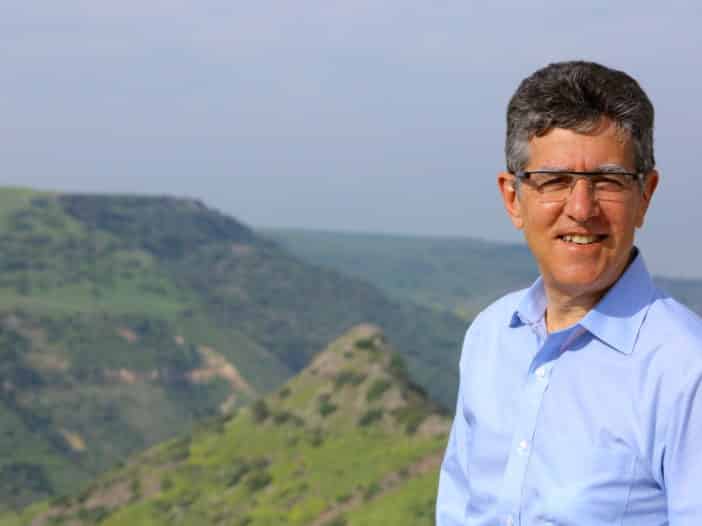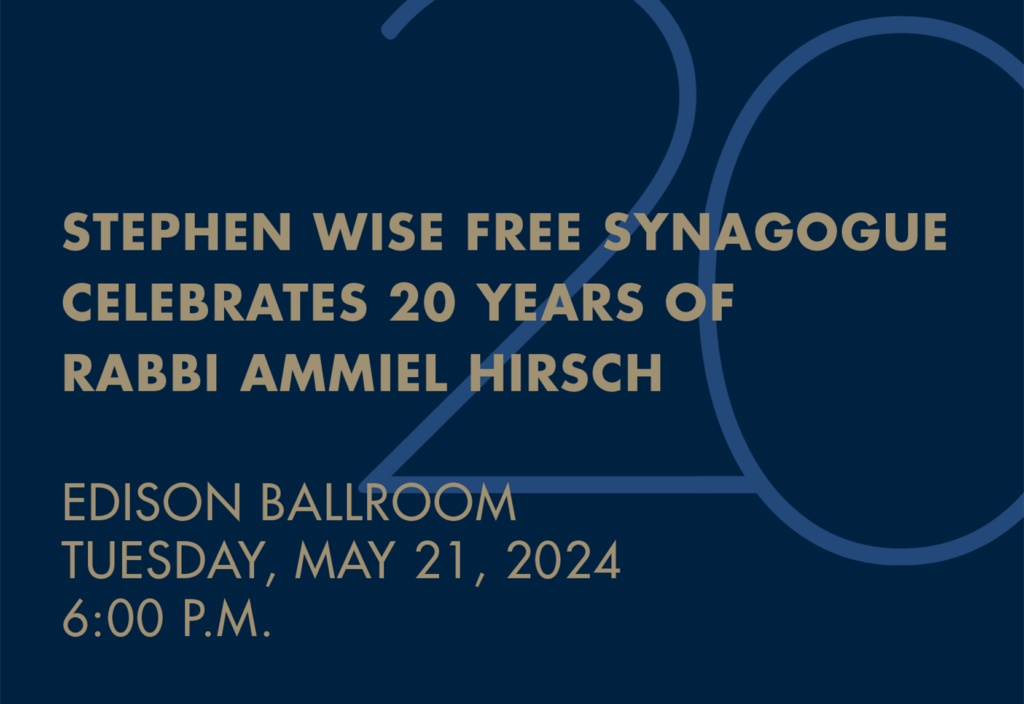
WITH ISRAEL UNDER INCREASING ATTACK and vilification, I want to remind our congregation what this synagogue has always stood for — since Rabbi Stephen S. Wise founded the Free Synagogue in 1907. Rabbi Wise wrote: “I made a mistake in taking it for granted that my unchanging Zionist position was fully understood by those who flocked to the services, not that I for a single moment concealed or minimized my Zionist loyalty. But I failed to make clear the duality of my faith in liberalism as the (religious) expression of the Jewish spiritual genius and in Zionism as the faith and hope for the future of the Jewish people.”
This is the legacy of our congregation — now over a century old — as it was first articulated by our founder. We are not neutral on Israel. That is not our job. Here we are passionate partisans.
We are not uncritical; an uncritical Jew is a contradiction in terms. In and of itself, criticizing Israel is entirely legitimate. Like even the most advanced countries, Israel still has a long way to go. I, myself, often criticize the Israeli govern- ment’s handling of issues of high moral, political, and religious consequence.
But as much as we might disagree or argue amongst ourselves, this synagogue will always stand by Israel’s side — not uncritically, but unconditionally.
Last year, as I was sitting in the Israeli government’s Cabinet Room awaiting a meeting with Prime Minister Benjamin Netanyahu, I noticed a framed passage on the wall next to his seat. It was from the first Book of Kings, chapter four.
As I read it I felt my eyes welling up and I recognized the feeling I get whenever Jewish history comes alive for me: when the past and the future flow into me and touch my soul, and I sense the timelessness of Jewish life — and my own smallness.
The text itself is not particularly exciting; it is a list of names. But they are not just any names — they are the names of the ministers of King Solomon’s cabinet.
“Elihoreph and Ahiah, the scribes; Benaiahu, chief of staff of the military; Zadok and Abiathar, the priests; Azariahu, who was in charge of the officers; Zabud, the king’s advisor; Ahishar, chief of staff of the palace; Adoniram, head of taxation…”
Now, as in the days of King Solomon 3,000 years ago, there is a Jewish state, with a cabinet, a tax system, a strong military — and all that statehood entails. Our people have raised Zion from desolation and made it live again — a miracle of biblical proportions, the likes of which have not been seen in the whole history of civilization.
A hundred generations have passed since the destruction of the First Temple in Jerusalem — and almost all of them considered the restoration of Jewish sovereignty to be a distant dream. It was so inconceivable that even 1,827 years later, when Theodor Herzl announced the birth of the Zionist movement, most Jews considered that announcement ipso facto proof that Herzl was a madman.
Look at us now! The Jewish state is on the cutting edge of so many human endeavors, accomplishing great feats of technological wizardry and intellectual and literary vigor, all with one hand tied behind its back: fighting wars on all sides, and withstanding and enduring the searing pain of human loss.
The last verse of First Kings, chapter four, reads: “Judah and Israel were as numerous as the sands of the seashore — eating and drinking
and happy.” But a grain of sand is just one tiny particle, acquiring significance only when joined with all the other grains of sand. The first chief rabbi of pre-state Israel, Abraham Isaac Hakohen Kook, taught, “Every Jew is like a grain of sand. We assume our full potential when we combine with all the other Jews of the world — fulfilling our collective destiny.”
May this be so. May we come together as a people to bring about better days — for our people and for all people.
This article is adapted from “In the Cabinet Room,” a sermon Rabbi Ammiel Hirsch gave on October 26, 2018.
AMMIEL HIRSCH is senior rabbi at Stephen Wise Free Synagogue. The Jerusalem Post named him among “The 50 Most Influential Jews of the Year” in 2018 and City & State New York magazine praised him as “the borough’s most influential voice” for Manhattan’s more than 300,000 Jews


